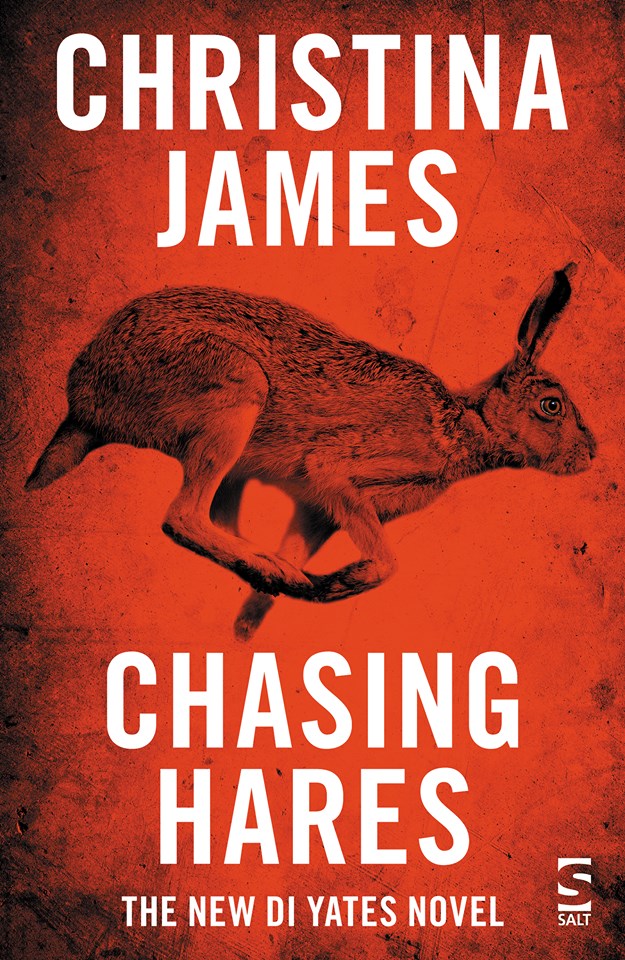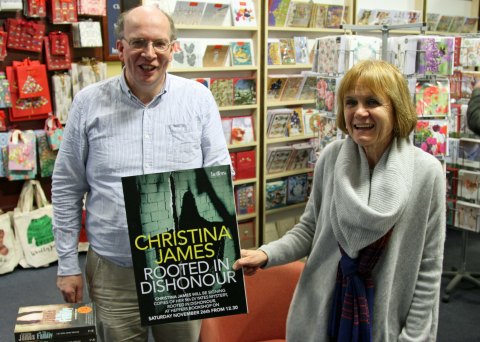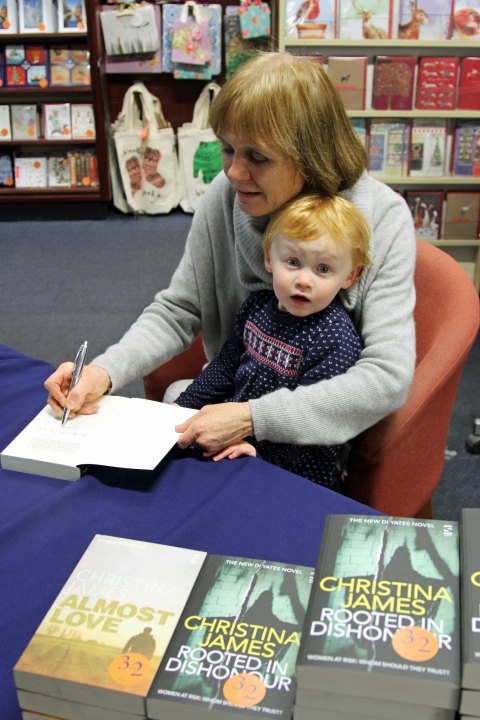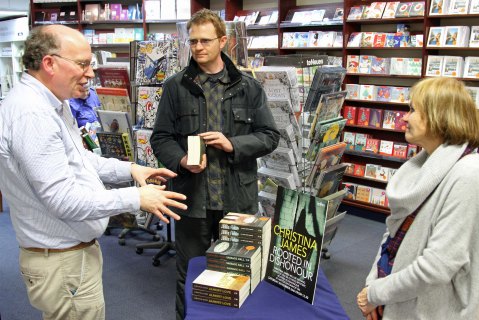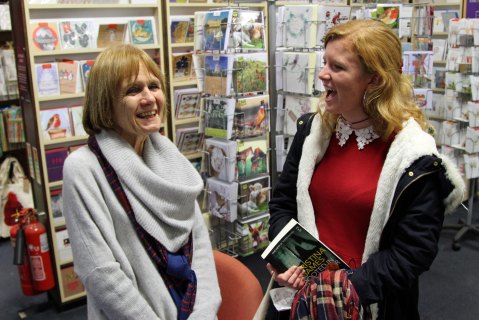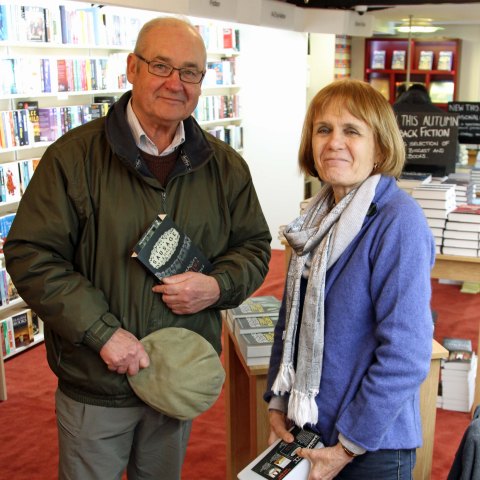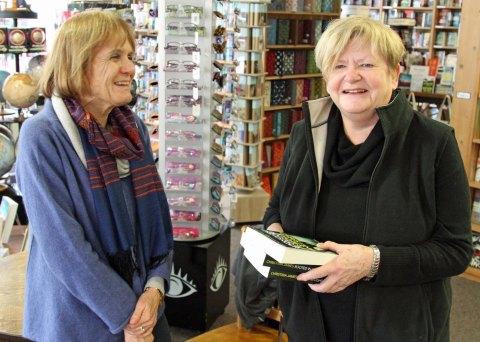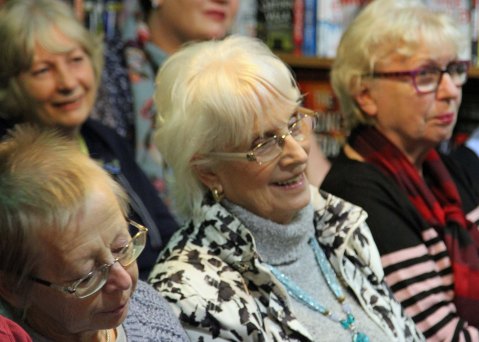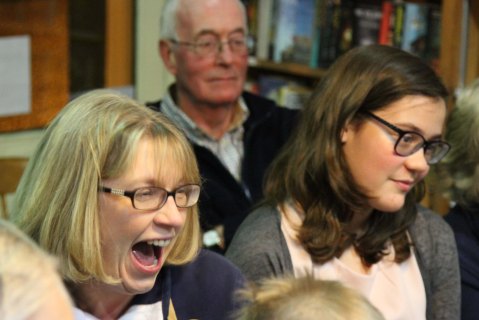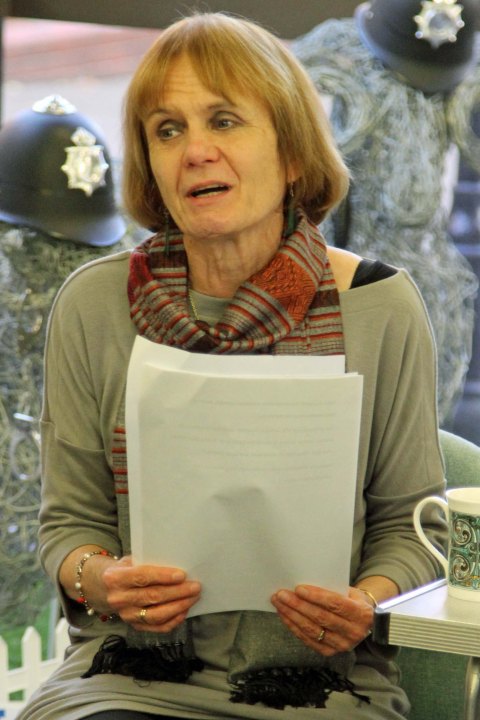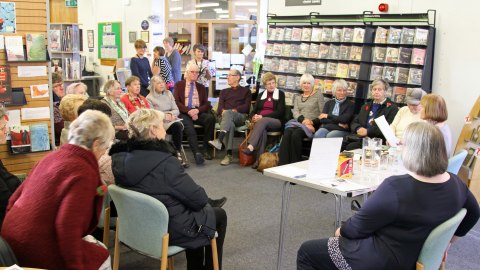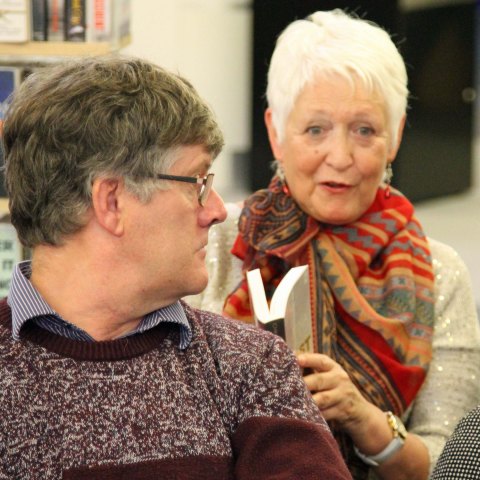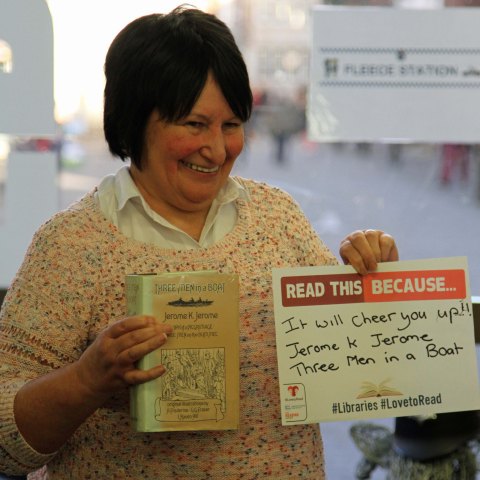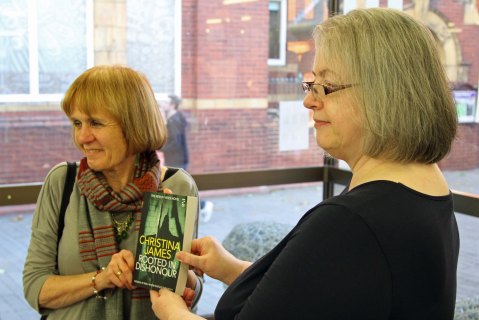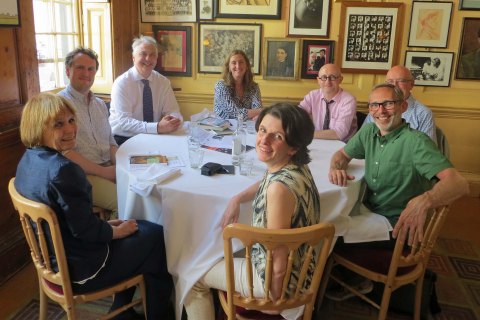Justifiable homicide

De Vries, the ninth DI Yates novel, will be published soon. As I mentioned in a previous post, it is the sequel to Sausage Hall, although each can be read independently of the other.
De Vries sets out to explore several themes: Why do some people become obsessed with discovering the truth about who their parents are, even at the risk of putting themselves in danger or losing their liberty? Can murder sometimes be justified? And, perhaps a little more whimsically, can buildings hide secrets and even, in certain contexts, develop personalities of their own?
In a future post, I’ll take a closer look at the mystery of parentage. For now, I’d like to consider the second of these themes. Wishing to find out more about whether murder can ever be excused, I looked up the term ‘justifiable homicide’. Unsurprisingly, I discovered that in different countries there is quite a range of legislation ‘allowing’ murder (i.e., not prosecuting the perpetrator). Internationally, the most frequently invoked law is one that absolves the murderer of blame if s/he killed while fearing for her or his own life, or the life of someone else in the immediate vicinity. In other words, the murder has been committed in self-defence. However, the precise definition of what legally constitutes self-defence is often unclear. For example, English law allows someone to exert only ‘reasonable force’ when defending property from an intruder, even if the intruder is trespassing in the middle of the night and the householder claims that s/he was terrified. The well-publicised case of Tony Martin, who shot dead a teenage boy and injured his twenty-nine-year-old burglar companion when they broke into his remote farmhouse in the early hours of one morning in the year 2000, remains controversial. Martin was convicted of murder, later downgraded to manslaughter. He served three years in prison before being released. Twenty years on, public opinion is still divided on whether he should have been convicted at all, but his conviction was the result of careful application of the law. The plea of self-defence therefore seems to depend on a number of factors, including the circumstances of death, how the law may or should be interpreted, the verdict of the jury if the perpetrator is taken to court and, finally, the views of the presiding judge.
Some countries allow or condone types of killing that others would not hesitate to regard as murder. Abortion and euthanasia are allowed by some western jurisdictions, condemned as murder by others. So-called ‘honour-killings’, while they may still be against the law, may attract lower sentences than other kinds of homicide in the countries where they are most commonly practised. (I take a closer look at honour killings in Rooted in Dishonour.) Perpetrators of ‘crimes of passion’ – i.e., murders committed in the heat of the moment, usually against a partner or spouse who has been caught ‘cheating’ or his or her lover – may sometimes be judged leniently, even sympathetically, especially in Latin countries, and a much-reduced sentence consequently handed down.
Whatever one’s stance on this, the logic that dictates that not all murders are equal when it comes to assigning culpability is not hard to understand, even though it is often controversial. But what if the murderer were under no particular pressure when s/he committed the murder? Would it make any difference to the degree of culpability in terms of, say, such a (possibly extenuating?) circumstance as being unexpectedly accosted – perhaps at home – by someone who might not have been at that moment an obvious direct threat, but who had previously inflicted personal – or close-to-personal – harm on him or her? And what if the victim were a totally reprehensible character with no counterbalancing virtues whatsoever? Could the case ever be made for letting the murderer of such a person go scot free, with his or her crime condoned or even tacitly approved by the authorities?
That was the conundrum I had to address when I started to write De Vries.
Warm in Walkers Bookshop

Walkers, Stamford
Saturday 4th November was a wild, wet day. The rain came bouncing down on the A1 as I headed for Walkers Bookshop in Stamford to sign copies of Fair of Face. In places, the water stood inches deep on the road. The lorries tossed out spray which severely restricted visibility. A Reliant Robin three-wheeler (I hadn’t seen one for years!) went bombing along at 70 mph and almost aquaplaned.
It was a relief to reach Stamford, always a haven of civilisation and peace, and, even better, to arrive in time to indulge in a cappuccino and a huge, home-made cookie at The George Hotel, before going ‘on duty’ at Walkers.
I received a wonderfully warm welcome from the staff at Walkers, as I always do – and, as always, I appreciated it: I know how busy bookshop staff are, especially on Saturdays, and I’m very grateful when they spare time to look after me in addition to everything else they have to do.
The rain didn’t deter Walkers’ customers from venturing out from home. They continued to show up steadily throughout the three hours I was there, some very windswept, some clutching wet umbrellas, all dressed in sturdy waterproofs, boots and hats.

It certainly felt as if winter had suddenly taken Stamford by storm, but with it came a sense of excitement, a feeling that there was celebration in the air. I suppose this may have been because it was one of the first weekends when people really start to think about Christmas shopping, but well before they begin to feel jaded and harassed by the whole prospect of coping with the ‘festive season’.

I’ve always enjoyed visiting Walkers – this was the fourth signing session I’ve been offered there – and yesterday was no exception. Many of the shop’s customers stopped to talk to me, and most of these bought one of my books – I was delighted to find that In the Family, Almost Love and Rooted in Dishonour were in demand, as well as Fair of Face. Most people wanted them for Christmas presents, but others supplied different reasons: one lady was intrigued by Fair of Face because she knows Spalding well, having grown up in Gosberton Clough (a place I have yet to feature in the novels, so she’s now given me the idea!); another wanted Almost Love for her husband to read on his frequent journeys to London;

another was bought by an author of Young Adult books who told me that she’d given a signing session in Walkers herself and was strongly in favour of supporting local authors. She said that her reading group might be interested in hearing me speak. If she reads this post, I’d like to thank her for a fascinating conversation and to say again that I’d be delighted to speak to the members of the reading group if indeed they’d like to hear me.

I’m never bored in bookshops: it’s a great privilege to be allowed to sit in one for several hours and just drink in the atmosphere. My time at Walkers was over only too quickly, but I took away some very pleasant memories that I know will stay with me.
I’d like to offer heartfelt thanks to Jenny Pugh, of Walkers Bookshop, Stamford, for making the signing session possible, and also to thank all of the staff there, particularly those who were working on the top floor, for their kindness and generous hospitality.
Enjoying the Cambridge Literary Festival at Heffers
Celebrating in 2016 its 140 years of selling books in Cambridge, Heffers is one of the nation’s great classic bookshops, a national treasure. It’s always been a privilege to visit it. Even better, from my point of view, it’s home to Richard Reynolds, perhaps the country’s best-known crime bookselling connoisseur. I first met Richard five or six years ago, when he had just embarked on a crime classic reprint venture. No doubt owing to Richard’s influence, classic crime is now big business: there are several excellent imprints, including the British Library’s own.
Richard is interested in all types of crime fiction, modern as well as classic, and I’m very proud to say that not only does he stock the DI Yates novels but he also invited me for a signing session on Saturday as part of the Cambridge Literary Festival. There was a wonderful buzz in the shop, which was packed with people shopping all the time I was there.
I had a glorious three hours, talking to old friends and many new acquaintances. I can’t begin to tell them how much I appreciate that most bought Rooted in Dishonour. There were lots of sales of the other books in the DI Yates series, too.
I’d like to thank Richard and his colleagues for great hospitality and for extending a very generous invitation to me to return to the shop again as soon as I am ready. Perhaps they should be careful what they wish for: I might turn up again next week!
You might like to share in some of the highlights of my day there with the photographs below:
Criss-crossing Lincolnshire with DI Yates…
Last Saturday, as last year and the year before, I once again enjoyed a warm welcome in Stamford’s Walkers Bookshop, which hosted a signing session for the publication of the new DI Yates.
In spite of the cold (snow had arrived the previous day in the Pennines), Christmas was in the air and the shop looked very handsome, newly kitted out with its festive stock. I enjoyed talking to customers as they came and went. I was particularly grateful to Anne’s daughter (who sent her husband back to the shop to buy the book, having herself first gone home to check that her mother didn’t have it), to the lady who bought a copy for her friend ‘Brig’ and with whom I had a fascinating conversation, to Brian, Vetta and Liam, a British/Scandinavian family, who took a huge amount of interest in all the books and how I’d come to write them and to the man who, after a great deal of deliberation, decided that he’d rather have Sausage Hall. Several people wanted to buy the earlier DI Yates novels. I was very sorry to have missed ‘the man from Gainsborough’, who’d visited the shop about half an hour before I arrived and bought all the novels, but couldn’t wait long enough to have them signed – I do hope that you will read this blog post and, even more, enjoy the books!
I’d like to extend special thanks to Jenny Pugh and Tim Walker, who invited me to the signing, and Lynne, Linda and Sophie, who looked after me so well on Saturday. I hope to look forward to meeting you and some of your wonderful customers again next year.
Spalding does DI Yates proud!
Yesterday was publication day for Rooted in Dishonour. As usual, I headed for Bookmark, Spalding’s lovely independent bookshop, which has kindly hosted the launch event for all of the DI Yates novels, beginning with In the Family in 2012. As always, I received a very warm welcome. For the past three years, Sam Buckley, the events manager, has arranged a dual event for me: a signing session in the afternoon and a talk and reading in the evening.
It was a cold, squally morning. I arrived at the shop about midday. It has recently changed hands and there was a major renovation going on in the café area; unfortunately, this meant that the café was closed, but I understand that it will be open again next week, ready for Christmas. I was privileged to meet Darren (twin brother of Jason, the new owner), who is in charge of the refurbishment work – he says Jason earns the money and he spends it!
Although the temporary lack of coffee was ruefully lamented by Bookmark’s clientele, the shop’s footfall (partly because it was market day) was excellent and there was a lot of interest in Rooted in Dishonour. One lady, Helen, bought three copies for herself and friends and said that she’d read all the DI Yates books: ‘Each one is better than the last’ – sheer music to an author’s ears!
Alex, who attends Spalding Grammar School and works in Bookmark on Saturdays, popped in at lunchtime and became one of my customers.
The evening event took place in the bookshop itself for the first time, as the café was out of bounds. As a speaker, I preferred the atmosphere there (though not the absence of cake!). Spalding audiences are always excellent, but this was my best ever!
I met some old friends and made many new ones. The discussion following my talk was a lively one and I was asked lots of searching questions about my writing. Several of the audience generously bought the new novel and some of the previous ones as well.
I’d like to thank Sam and the rest of the staff at Bookmark for working so hard to make the event a success, and all my wonderful Spalding readers for giving me a day to remember.
Murder comes to Pontefract again, baa gum.
Saturday November 5th was a cold, squally day, a fitting atmosphere for Bonfire Night. I was probably feeling the cold more than most, having just returned from some time away on business, first in Quito and then in Charleston, South Carolina (more about both on these pages very soon). The temperature in each of these places was around twenty-five degrees.
I was in Pontefract, a historic Yorkshire town, scene of gruesome murders during the Wars of the Roses and, almost two centuries later, in the English Civil War. Pontefract library is a light and airy building with lots of glass and invitingly-arranged bookshelves that fan out from the centre as well as lining the walls. I’d been very kindly invited by Alison Cassels, the Officer for Reading at Wakefield Library Services, with whom I have several times participated in crime fiction events in West Yorkshire; she had asked me to speak about Rooted in Dishonour, which will be published on 15th November, read one of the chapters and then host a more general literary event, which included asking the audience to name their favourite novels and take part in a short ‘whodunnit’ play written by Ann Cleeves.
It was a long time since I’d last visited Pontefract Library and I enjoyed going back. A small flock of helmeted sheep occupied the ‘Fleece Station’ and busied itself with a murder scene just outside. The corpse had been already removed, having first been outlined by Eweno Hugh, the soco. I noted the chalked heels and deduced that the victim had been female. I heard that DI Tup, who had been protecting some productive grass from persecution by local thieves, would soon be on the case. I felt quite at home. Furthermore, as the Ann Cleeves playlet was set in Shetland, refreshments included shortbread and Tunnock’s teacakes, a treat that I’ve rarely seen since I worked in Scotland some twenty years ago.
The audience consisted of about twenty-five people, a few of whom I’d already met at events in Wakefield in previous years. They were truly one of the liveliest, most receptive audiences I’ve ever encountered. They gave Rooted in Dishonour a wonderful debut and asked so many questions that the event lasted two hours, instead of the hour that had been scheduled. If anyone who came on Saturday is reading this, I’d like to thank you very much indeed.
Huge thanks also to Alison, Lynne, Liz and Lynne and their colleagues, who made me feel as welcome and special as they always do.
Rooted in Dishonour’s launch event will take place at Bookmark in Spalding on Tuesday 15th November, the publication date; I’ll be signing books in the afternoon and talking about the novel and giving readings in the evening. More details may be found at http://bookmarkspalding.co.uk/. On Saturday 19th November, I’m signing copies of the novel from 11 am – 2 pm at Walker’s Bookshop in Stamford (http://www.walkersbookshops.co.uk/) and on Saturday 26th November, starting at 12.30 pm, I have a signing session at Heffer’s Bookshop in Cambridge (http://bookshop.blackwell.co.uk/stores/heffers), as part of the Cambridge Literary Festival.
I’m also hoping to be able to spend rather more time blogging and catching up with many good friends on the social networks; they have been very, very kind to me on Twitter and Facebook whilst I have been caught up in work. Many sincere thanks to them all.
What really happened?
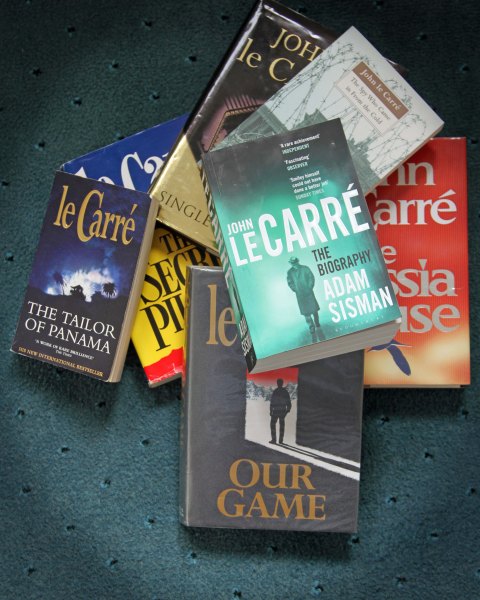
I’ve finished reading John Le Carré: the biography, by Adam Sisman, a hugely enjoyable tour de force which has been justly praised by everyone who’s reviewed it. My only reservation is that it’s ‘official’, meaning that Le Carré co-operated with Sisman throughout – a huge advantage, but tempered by the fact that Sisman is therefore not always able to explore certain aspects of Le Carré’s life fully. For example, I’d like to know more about his relationships with women (the book goes into detail about his first wife only, now deceased); more about what other people – siblings, children, friends, publishers – thought or think about him; and, of course, more about his life as a spy. Sisman himself is not entirely convinced by Le Carré’s stated reasons for his reticence about the last of these.
However, Sisman makes it clear in his introduction that, although he and Le Carré enjoyed a mutually respectful professional relationship while the research for the biography was in progress, he didn’t allow himself to be tucked into Le Carré’s pocket. His version of what took place during certain key events in the author’s life (based on painstaking assembly of the facts) often differs markedly from Le Carré’s. This is fascinating, because usually these are also events that have been fictionalised to create important scenes in the novels. Sisman suggests that, over time, Le Carré has conflated his recollection of the actual event with the fictionalised account – which is even more likely in the many instances when he’s created different versions of the same event in several different novels.
This made me think about the constant overlap, and inevitable tension, between fact and fiction. We do always want to know ‘what really happened’: it’s a fundamental trait, part of the curiosity that makes humans the most adventurous and experimental of all primates. But can we ever achieve this knowledge? Does it even exist? It’s the continuing quest of the historian, his or her holy grail, and one that’s bound, however meticulous the research, to result ultimately in failure. The many versions of the Battle of the Somme that have been published this year offer a vivid example.
As a crime writer, I’ve often been intrigued by the different versions of the truth that are presented in courts of law. For example, based on exactly the same set of evidence, Oscar Pistorius was convicted of ‘culpable manslaughter’ by one judge and homicide by another. O.J. Simpson made a histrionic display of not being able to fit on to his hand a bloodstained leather glove left at the scene of his wife’s murder. It was pure courtroom theatre, but enough to introduce ‘reasonable doubt’ into the minds of the jury at his criminal trial, so they found him not guilty; however, he lost a civil court case in which he was accused of the same crime.
Even trickier than facts that rely on interpretation are ‘facts’ that may or may not be the result of distorted memory or belief. Recently, I’ve read several accounts of the Jeremy Bamber murders that took place thirty years ago. Bamber, who is one of a handful of convicted murderers serving a whole-life tariff and who has been told that for him life imprisonment literally means staying in prison until he dies, was accused and found guilty of murdering his adoptive parents and sister and her two twin sons in order to inherit the family wealth. Bamber has always protested his innocence; he’s set up a website that gives his version of events and has quite a large number of supporters who believe him. Having studied these accounts, written from all possible points of view, my own conclusion is that it’s the balance of probability that Bamber did commit the murders. What’s less clear is whether he himself knows this, or whether he either killed his relatives while experiencing a ‘fugue’ and has no recollection of their murders, or perhaps has been proclaiming his innocence for so long that he now believes it himself. This may sound far-fetched, but there is something very odd about his case.
Points of view are slippery things. As a child, I looked up to my paternal grandmother, a petite and elegant lady who kept house for my great-uncle, the youngest of her four brothers. Unlike my other grandmother, she was very up-to-date and well-informed, not just about current affairs, but about the fashions and music of the sixties that interested me. She went out to work, she dressed in smart clothes and she was always ready with good advice, but only when asked. I thought she was just about the perfect role model. However, I noticed that her brothers often spoke to her quite condescendingly. There seemed never to have been any question that she would take the entire responsibility of caring for, first of all, her elderly mother and then her youngest brother, who was physically disabled. At the time, I thought this was just another example of the male chauvinism that was rife in my family, but much later I discovered that she’d been ‘a bit of a goer’ in her youth. They’d given her ‘respectability’, but it seems the debt was not one that could ever be repaid. Their view of her was totally at variance with my own. Similarly, when my parents’ marriage disintegrated, I thought I understood chapter and verse exactly why, having been the reluctant occupier of a ringside seat, but over the many years that have since passed I’ve come to realise that I saw those events entirely from my mother’s point of view: I had and still have no idea what my father thought or suffered.
What did really happen? It’s a constant but almost always unanswerable question. In my latest novel, Rooted in Dishonour, mistaken points of view cost dear. The most skilful novelists are those who can assemble a kaleidoscope of viewpoints and still keep the reader onside, still maintaining that ‘willing suspension of disbelief’ that is the essential ingredient of all successful fiction. A few, like Le Carré, have the rare capability of achieving this while shifting the reader’s perception of the characters over time: thus, if you read all of the Smiley novels in sequence, you begin by thinking that Karla is the devil incarnate and end by realising that he is ‘just’ a man, with all the depth as well as the imperfections that entails. And it begs the question, what really happened? If we didn’t have to ponder that, there’d be no reason for reading any novel and, therefore, no reason for writing it.
Mine is the dishonour…

I must apologise for my long silence to all the readers of this blog and to those very, very wonderful Twitter and FB friends (You know who you are!) who have continued to tweet out for me – I’ll be doing my best to make amends very soon now. Your kindness is phenomenal!
I do have excuses for not having posted much recently (a year like no other for me), but I realise I can’t justify my silence when so many of you manage to keep up your own posts and timelines and support me and others on top of doing your ‘day jobs’. However, by way of explanation, my own day job has taken me abroad several times this year (to the USA, twice, Seoul, Barcelona and Dubai), and whilst I realise how incredibly privileged I am to have visited all these places, I know that some of you will understand that long-haul travel is very disruptive to a writing routine, and the work resulting from those trips even more so. There have been some family challenges, too. As a result of all this, I was way behind with the latest DI Yates, the deadline for which was also brought forward slightly and I’ve been both-candle-ends burning for quite some time. Anyway, I’ve now finished the novel and should like to tell you a little bit about it, as well as, to start with, some landmarks of my writing year so far.
First and foremost, I’m delighted to be able to tell you that Salt has a wonderful new team to support its books. Chris and Jen Hamilton-Emery and all Salt authors are now being supported by Adrian Weston (selling rights), Hannah Corbett (in charge of PR) and Medwyn Hughes and Julian Ball, of PG Distributors. I had the privilege of meeting everyone at a lunch in June. It is the most stellar team Salt has ever had and I’m sure will do a wonderful job.
For the third year running, I attended the Winchester Literary Festival at the end of June. This year, as well as giving as yet unpublished authors some one-to-one advice, I gave a talk on crime writing (Whodunnit: how it’s done), which attracted a much bigger audience than I’d anticipated and I think was probably a success.

A couple of weekends ago, I was invited back to Harlow Carr Gardens to participate in a series of signing sessions which Juliet Allard, the lovely bookshop manager, had organised to celebrate the summer. As on the last occasion, I really enjoyed the ambience there and the buzz of being in a really good bookshop – one that is supported not only by the local community, but by visitors who come from many miles away to see the gardens.

Juliet Allard has invited me back for another signing session after Rooted in Dishonour, the next DI Yates, is published in November. I’ve been offered a launch signing session/evening event for the novel at Bookmark, in Spalding, a bookshop with which I have a very special relationship and which has supported all the Yates novels magnificently ever since In the Family was published, and another signing session at Walkers Bookshop in Stamford. I’ll post and tweet the dates nearer the time. At present, I’m taking bookings for other events around the publication date, including library and bookshop events and talks to reading groups, so if you are interested I should be delighted to hear from you.
So, on to the novel. This is what it’s about (apologies for using the publisher’s blurb, but I did write it myself):
Eighteen-year-old Ayesha Verma disappears from her home in Spalding just a few days after her parents have introduced her to the cousin they’ve arranged for her to marry. There has been a nation-wide police campaign to raise awareness of ‘honour killings’. Conditioned by this, DI Tim Yates and Superintendent Thornton are convinced that Ayesha has been murdered for refusing the arranged marriage. Tim throws himself enthusiastically into preparations for a trip to India to interview the cousin. He first travels to London to visit his rather louche old friend, DI Derry Hacker, at the Met. Hacker introduces Tim to DC Nancy Chappell, an unconventional expert on honour killings.
When Tim arrives at King’s Cross he thinks that he hears the voice of Peter Prance, a confidence trickster whom he last encountered when he was investigating the murder of Kathryn Sheppard several years before. He’s unable to follow the man because he’s suddenly taken ill.
Tim’s wife, Katrin, has just returned to work as a police researcher after the birth of their daughter Sophia. DC Juliet Armstrong, who is far from convinced that Tim is right about the reason for Ayesha’s disappearance, arranges for Katrin to meet Fi Vickers, a social worker who helps women to escape from forced marriages and violent male relatives. She hopes that Fi will introduce Katrin to some of the women in her care so that Katrin can build a picture of the likely circumstances of ‘honour killings’. Juliet herself is feeling aggrieved because she thinks her career is going nowhere. Tim and Superintendent Thornton have announced their intention to appoint a Detective Sergeant to the team, but Juliet is convinced that she won’t get the job.
DI Hacker arranges dinner in a restaurant for Tim with a ‘surprise’ guest, who turns out to be Patti Gardner, the SOCO who was his girlfriend before he met Katrin. Derry is called away to a reported gangland beating shortly after they’ve begun to eat. Tim remains à deux with Patti, escorting her back to her hotel at the end of the evening. There he’s taken ill again, and is so incapacitated that he spends the night in Patti’s room. The victim of the gangland beating has been spirited away by the men who attacked him, but from Tim’s description Hacker is convinced he is Peter Prance.
Katrin has received a visit earlier that evening from Margie Pocklington, a teenager working for her child-minder. Margie asks Katrin to employ her as a full-time nanny, and when she gets a cautious response flounces out of the house. Next morning, she fails to turn up for work. She has vanished.
Juliet Armstrong is convinced that Ayesha’s and Margie’s disappearances are linked. She has begun to investigate when Tim returns to Spalding earlier than expected, with Nancy Chappell in tow. He puts her in joint charge of the investigation while he is in India. Sparks fly.
I hope that you will find this intriguing. You’ll see that the ‘cast’ includes some old acquaintances, but, like all the Yates novels, it stands on its own: you don’t need to have read the others first.
Thank you again for all your support and interest. I have some amazing friends out there!
